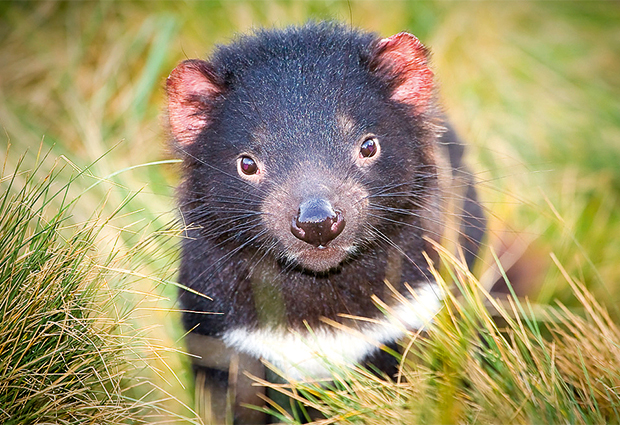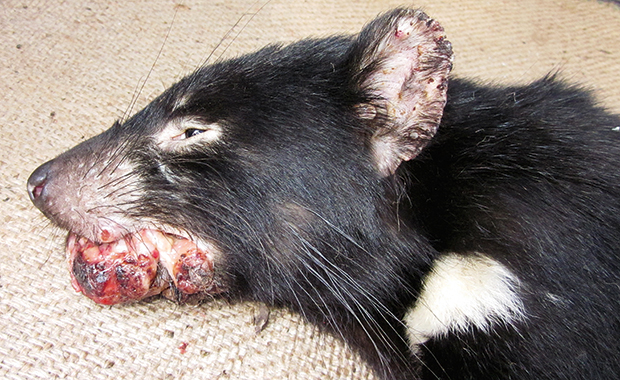
Branches: Sympathy for the devil
Is it possible to pass cancer from one individual to another? For some animals, it is – and, sadly, a unique Tasmanian species is facing possible extinction as a result. This is an extract of an article published in the Science in School journal for science teachers.

By Susan Watt
You could say that sympathy for the devil is what led Elizabeth Murchison to her field of research – not for Satan himself, but for the fierce little marsupials known as Tasmanian devils.
This species, unique to Tasmania, is under threat from a form of cancer that, bizarrely, is spread by direct transmission from one individual to another: infectious cancer, in other words. Called devil facial tumour disease (DFTD), it causes large tumours on the face and inside the mouth of affected animals and has rapidly spread through the Tasmanian devil population. It appears to be both untreatable and invariably fatal.
Biting into evolution
Now based at the University of Cambridge in the UK, Murchison, who spoke at the joint EMBO|EMBL Science and Policy event last year, focuses her research on the genetic aspects of DFTD and other transmissible cancers. These strange diseases seem at first sight to completely contradict our understanding of the nature of cancer.
Read the full article, published in issue 32 of Science in School >



